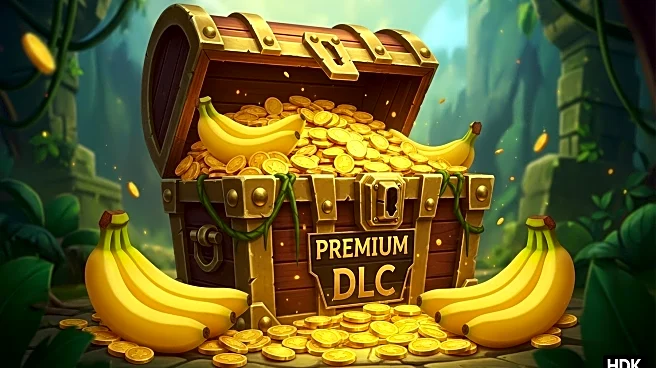What's Happening?
The recently released DLC for Donkey Kong Bananza, titled DK Island & Emerald Rush, has sparked mixed reactions among fans. The DLC, priced at $20, adds new content to the game, including the Emerald Rush mode and DK Island, which serves as a set piece rather than offering substantial gameplay elements. While the Emerald Rush mode introduces roguelike elements and challenges players with various difficulty levels, DK Island lacks collectibles and significant gameplay features. Fans have expressed dissatisfaction with the pricing and the perceived lack of value, comparing it to other Nintendo offerings and questioning the decision to release such content as paid DLC.
Why It's Important?
The reception of the Donkey Kong Bananza DLC highlights ongoing concerns about pricing strategies and content value in the gaming industry. As companies increasingly rely on DLC to extend the lifespan of games, players are scrutinizing the balance between cost and content. The criticism directed at Nintendo reflects broader industry trends where consumers demand transparency and value for their purchases. This situation may influence future DLC strategies and pricing models, as companies seek to align their offerings with consumer expectations and maintain brand loyalty.
What's Next?
Nintendo may need to address fan concerns by providing additional content or adjustments to the DLC to enhance its value. The company could also consider revising its marketing strategies to better communicate the benefits and features of DLC offerings. The feedback from players may prompt Nintendo to reevaluate its approach to DLC pricing and content delivery, potentially impacting future releases and consumer trust.
Beyond the Headlines
The controversy surrounding the Donkey Kong Bananza DLC underscores the evolving relationship between game developers and consumers. As the gaming industry continues to expand, companies must navigate the complexities of consumer expectations, pricing strategies, and content delivery. This situation highlights the importance of maintaining transparency and value in gaming offerings to foster positive relationships with players and ensure long-term success.











